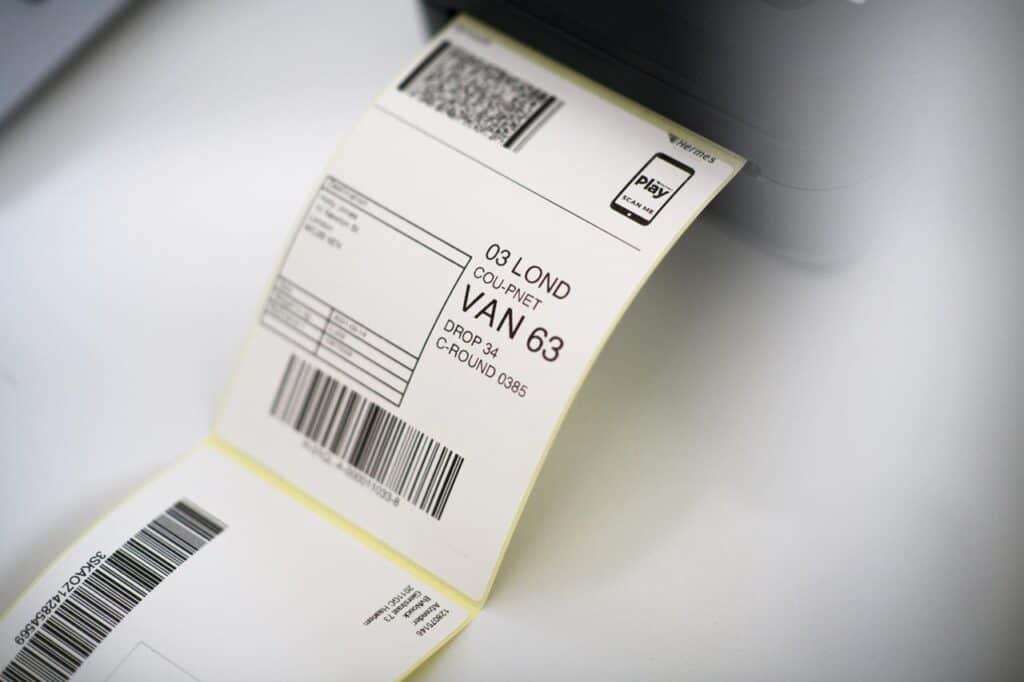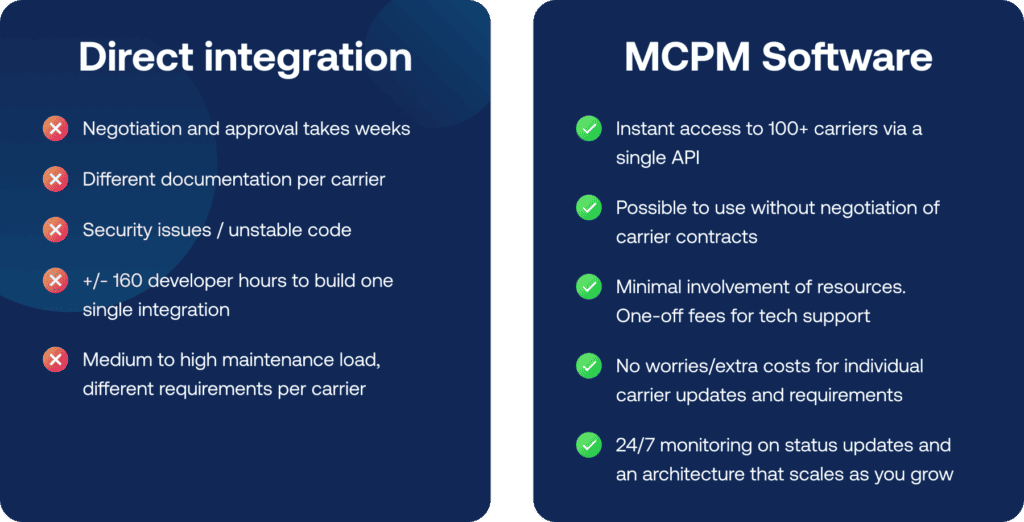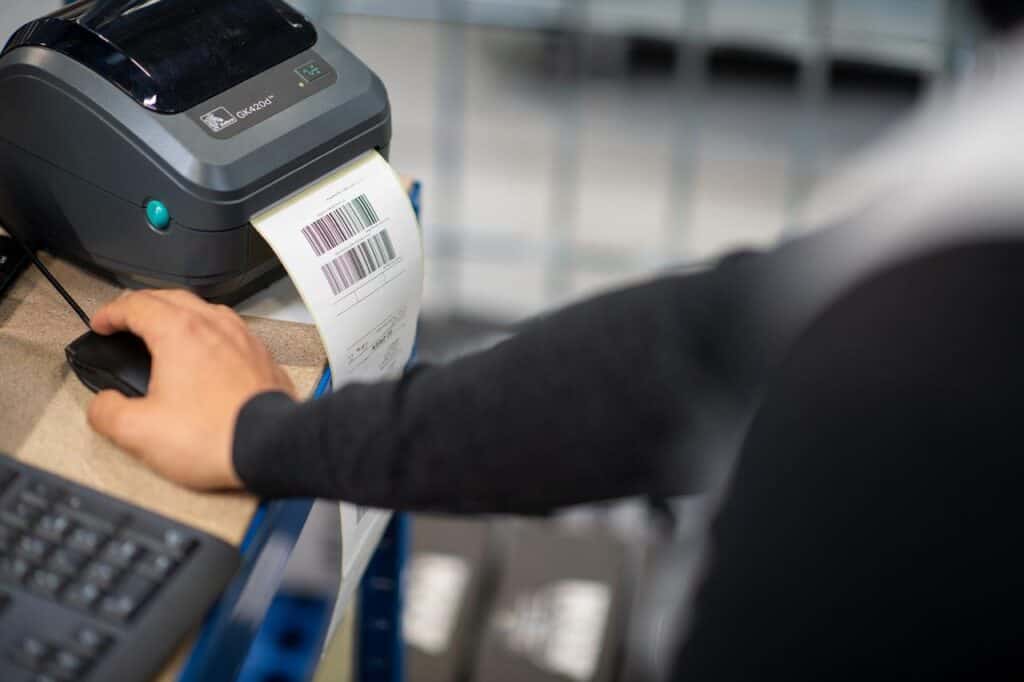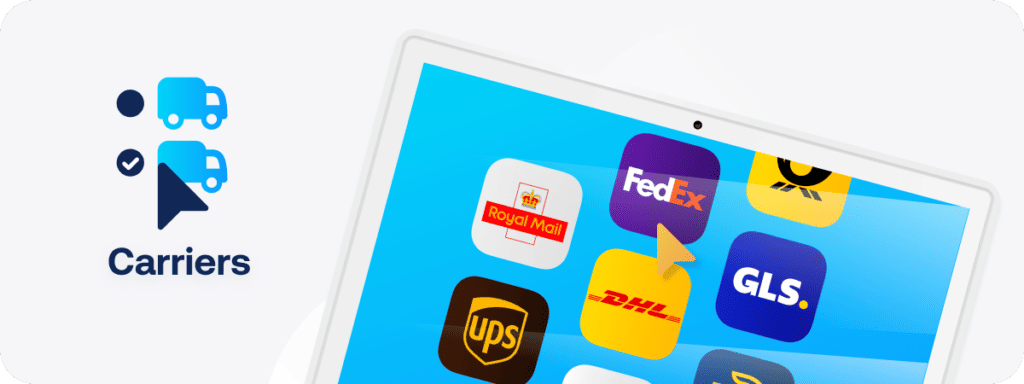In 2021 the number of packages being shipped worldwide amounted to over 159 billion parcels and Statista predicted that by 2027, parcel shipping worldwide will surge to an astonishing 256 billion units annually.
One of the reasons for this increase is the rise of online shopping, especially during the COVID-19 pandemic. As online shopping and e-commerce continue to gain momentum, the demand for parcel shipping is set to soar.
This surge in shipping comes with its own set of challenges, and businesses face significant challenges when it comes to constrained delivery capacity and maintaining a positive customer experience.
Delivery costs have also spiked due to inflation in fuel and labor costs, leaving online retailers needing the proper tools to optimize their transportation spend.
In overcoming these obstacles, companies are turning to transportation management and warehouse management systems, but most of these systems lack the specialized capabilities needed to manage parcel shipping.
Many providers partner with multi-carrier parcel management (MCPM) solutions to bridge this gap to provide their customers with optimized and cost-effective shipping solutions.
Are you ready for the parcel shipping volume explosion – read on for the solution to manage the growth!
Demystifying multi-carrier parcel management:
- What is multi-carrier parcel management?
- Direct carrier integration vs. multi-carrier parcel management solutions
- Why you need a multi-carrier shipping software solution
- How to choose a multi-carrier parcel management solution
- Optimizing your logistics with an MCPM solution
- Capabilities to look out for when selecting an MCPM solution
What is multi-carrier parcel management?
A multi-carrier parcel management solution is software that offers multiple carriers in a single solution. A multi-carrier parcel management strategy entails your business relying on several parcel carriers to deliver goods to customers.
MCPM solutions select carriers based on order properties such as:
- Parcel size and weight
- Delivery cost
- Delivery zone and time
- Delivery requirements, such as the urgency of the delivery
- Reviews on carrier performance
- Cost differentials
- Insurance
- Tracking options
MCPM solutions help online retailers and third-party logistics providers (3PLs) manage label creation, shipping manifests, and carrier rates and provide tracking status messages to customers.
By simplifying shipping operations for carriers, warehouses, and customers, multi-carrier parcel management software creates an omnichannel shipping ecosystem that guarantees organizations the best possible shipping options for every shipment.
Core assets of multi-carrier parcel management solutions are that it:
- Enables management of all carriers in a single platform
- Selects the best carrier and service level for your needs by automatically applying a “best fit” approach according to your unique rules
- Enables tracking shipments from pick-up through to delivery
- Reduces your shipping costs
- Streamlines your processes and workflows
- Integrates with ERP systems and warehouse management software

Within the Multi-carrier Parcel Management Solutions category, further differentiation is made between the different software solutions.
How multi-carrier parcel management solutions are differentiated from each other
If you’re looking into parcel solutions, it’s crucial to understand how solutions in the market are differentiated. Multi-carrier parcel management solutions are distinguished from each other based on the following:
- The region in which they operate
- The functionalities and capabilities they offer
- The industries they serve or are specialized in
- Their deployment model, i.e., Cloud Based or On-Premise
- The organization size they serve (Large Enterprises / SMEs)
Considering these factors when evaluating parcel solutions is essential to ensure you find the right fit for your business.
In contrast, a single-carrier parcel management solution with a direct carrier integration limits your options to a single delivery company.
Direct carrier integration vs. multi-carrier parcel management solutions
A direct carrier integration is all about connecting your store, WMS or ERP system directly with your preferred carriers’ system, so they can talk to each other seamlessly.
When you work directly with a carrier, you obviously become dependent on them and their systems. If you plan to expand into new markets or work with different carriers, you will have to integrate with each separately.
Separate integrations are very inefficient, costly, and time-consuming, and you will need help from developers to do it. Besides these points, you also have to note that:
- Every carrier has its own documentation
- Contract negotiations and approvals take time
- Data shows that on average it takes around 160 developer hours to build a single integration
- The different requirements per carrier result in significant maintenance loads
- You must deal with hosting, alerts, bugs and fixes, unintuitive architecture, and security issues.
A multi-carrier parcel management solution, on the other hand, offers multiple carriers as part of one integration process.

Why you need a multi-carrier shipping software solution
Multi-carrier shipping software solutions come with additional money. Check out why you need a multi-carrier shipping software solution and use it to convince your finance department that it’s totally worth it:
- Delivery costs are increasing due to fuel and labor cost inflation
- Most transport and warehouse management systems don’t offer parcel capabilities, and those that do may come with additional costs
- Capacity constraints due to unforeseen peaks or strikes may require diversification in carrier usage
- Expanding into new markets while maintaining speedy delivery may require working with carriers beyond the local region and an MCPM easily enables you to do so.
- Consumers demand more from online ordering, and MCPM solutions can improve the customer experience beyond traditional carrier offerings
- Automation and optimization of the shipping process allow you to invest time into other aspects of the business
How to choose a multi-carrier parcel management system
There are many multiple-carrier management systems, and knowing how to choose the right one is essential for your shipping operations. Here are five factors e-commerce businesses should consider when selecting a multi-carrier parcel management (MCPM) solution:
- Strong customer support
Look out for a parcel management solution with strong customer service that quickly and regularly provides you with needed information, especially when things go south. Delivery risks abound in the supply chain, and you won’t want a system that will ignore your questions or delay in providing you with answers.
Read customer reviews and ask how robust their customer support team is when choosing a delivery company for your business.
- Exceptionally efficient with many different carriers available
Efficient service is non-negotiable when choosing a MCPM solution. The MCPM system has to impact your business positively and offer lots of carriers you can choose from. If the carriers on their system are limited, choosing a multi-carrier parcel management solution defeats the purpose.
The carriers in multi-carrier parcel management should also be companies with good reviews and ratings that extend their services to your desired regions.
- Inventory management services
If you deal with large inventories, you should look for MCPM software that integrates with a warehouse management system. Some multi-carrier parcel management solutions manage international returns and restocking as well.
- Shipping cost reduction and discounts
Many shipping companies offer discounts and cost reductions, especially when you deal with high-volume shipments. Many go as far as providing loyalty programs to gain customers’ trust. Look out for these and compare different money-saving packages.
Capabilities to look out for when selecting an MCPM solution
The following are the core and extended capabilities of an MCPM solution, with core capabilities being the basic functionalities shared by most solutions and extended capabilities being add-on functionalities offered by some leading vendors:
Core capabilities:
- Parcel contract management: This capability supports rating processes and allows for storing and managing contracts with different carriers.
- Carrier compliance: This involves knowledge of import tariffs, packaging specifications, and customs rules and regulations to ensure successful shipping processes.
- Parcel consolidation: Allows online retailers with high parcel volumes to consolidate parcels into grouped shipments, potentially leveraging less than truckload (LTL) rates and saving between 30% to 50%.
- Label and document creation: Enables the generation of shipment parcel labels and related shipping documents.
- Parcel execution: Reduces the total time needed to process a package from picking, packing, and shipping via one software solution.
- Real-time parcel visibility: Allows customers to track their shipment and reduces calls to customer service centers.
- Reporting/analytics: Supports the collection and processing of historical delivery and return metrics to create summaries and reports for further analysis.
- Multi-carrier parcel manifesting: Involves validation of shipments against carrier-defined rules, routing and tracking number generation, and communication to the carrier once the shipment is ready to depart.
- Integration with WMS, TMS, DOM, and ERP: Integrates with an organization’s other systems to aid processes and shipment consolidation.
Extended capabilities:
- Parcel optimization: Allows for optimization of carrier and mode of transport selection to calculate the best transportation option.
- Procurement and bid optimization: Automates the transportation bidding process, allowing the MCPM solution to send bids to carriers, analyze responses, award bids, and save provided rates.
- Automated rate shopping: Rate shops multiple carriers at a shipment level to ensure the least-cost alternatives and benefit from the value regional carriers could offer.
- Parcel freight payment: Allows for payment of parcel freight charges directly from the system, helping to manage discrepancies as charges received electronically can be easily compared with final carrier invoices within the MCPM application.
- Mobile solutions: Enables users to access the MCPM application through web portals or specially designed apps for mobile or tablet-like devices connected to the internet.
- Last-mile delivery: Supports the digital capture of proof of delivery, allows for shipment status tracking, or helps with customer engagement during delivery.
- Returns and claims management: Offers capabilities to help manage reverse supply chain processes, including the creation of exception events, generation of return labels, and connection to the client’s web store to track returned packages.
- Advanced cartonization: Uses algorithms to determine and guide the appropriate number and size of cartons required to ship the items in an order.
- Cross-border and pickup drop-off (PUDO): Offers capabilities to support international consolidation services and documentation, and some carriers offer integration into pickup and drop-off networks, reducing carrier costs.
Leading MCPM solution vendors also provide more value-added services such as business intelligence platforms, front-end commerce/web integration, and predictive tools like “carrier balancing.” These tools attempt to collaborate with carriers to view live and predictive carrier information to determine which carrier may have the capacity to serve their clients’ needs during peak times.

Optimizing your logistics with an MCPM solution
To ensure the success of your parcel supply chain, you need to consider various dynamics, including service-level options, accessorial charges, and dimensional weight factors.
This is where Multi-carrier Parcel Management (MCPM) comes into play. Using MCPM software, you can optimize your parcel shipments and reach new markets while reducing shipping times and increasing customer satisfaction.
3 Ways to optimize your parcel supply chain with an MCPM solution:
- Expand Your Delivery Networks: MCPM solutions can help you connect to a wider range of carriers and services, allowing you to expand your delivery networks and reach new markets. Additionally, MCPM vendors can ensure carrier compliance, which can vary by country and region.
- Improve Shipping Dynamics: Cost-effective parcel supply chains require consideration of service-level delivery options, additional charges, and dimensional weight factors. MCPM software offers rate shopping and service configuration options across multiple carriers, enabling you to optimize these variables. With the rise of e-commerce and multichannel commerce, further changes beyond traditional MCPM usage are expected.
- Enhance Visibility: MCPM solutions enable you to track the status of your shipments across multiple carriers and take action to resolve any issues. This enhances your visibility into your operations, reducing transit times and increasing operational efficiency. MCPM vendors are adding value-added services such as business intelligence platforms, web integration, and predictive tools to their offerings.
Utilizing these MCPM solutions allows you to streamline and optimize your parcel shipments, whether you are using it as a complementary solution to your existing Transportation Management System (TMS) and Warehouse Management System (WMS) or as your primary transportation solution.
Multi-carrier Parcel Management with Sendcloud
Our mission is simple: we want to empower online retailers to compete by optimizing the full shipping journey, from checkout to returns.
With Sendcloud, you can turn logistics from a bottleneck into an accelerator, making shipping a competitive advantage for your business.
By creating a smooth and hassle-free shipping experience, you can take your customer service to a higher level, making parcel delivery part of the overall customer experience. It’s a win-win situation for both businesses and consumers alike.
Sendcloud makes multi-carrier parcel management easier for you with:
Checkout – Delight your customers and reduce checkout abandonment with the fastest, most convenient, and most affordable delivery options.
Carrier management – Skip the long and costly integration process with separate carriers. Easily connect to and activate multiple carriers through a single solution
Shipping – Save tons of time with automated shipping label generation, automated customs docs for cross-border shipments, and advanced shipping rules
Tracking – Provide the best post-purchase experience with branded tracking notifications that drive customer loyalty and decrease customer service inquiries.
Returns – Create a smooth and efficient (international) returns process for both you and your customers with your own branded returns portal
Analytics – Stop making delivery promises you can’t keep. Get insights from historical and real-time data based on millions of shipments.
Power logistics with flexible APIs – Add core shipping functionalities to any custom system, WMS, ERP, or marketplace. Save engineering time and increase speed-to-market.
Don’t just take our word for it. G2 Market Research is passionate about helping buyers find software solutions that can best solve their business problems. Their goal is to represent software to buyers based on the way they are sold. They rate “Quality of Support” and “Ease of Use” are the top two factors that positively impact user satisfaction for Multi-carrier Parcel Management Solutions products. Within this category, G2 rated Sendcloud 4.8 out of 5.
Final thoughts
In the age of e-commerce, shipping has become a critical aspect of customer experience and a significant cost for businesses. Fuel and labor cost inflation, and customer demand for speedy and reliable delivery have made parcel management software an essential tool for optimizing transportation spend.
Are you an e-commerce business looking for a way to scale up your operations? Then Sendcloud might be the all-in-one shipping platform you’ve been searching for. Request A Demo and see what Sendcloud can do for your shipping efficiency.






